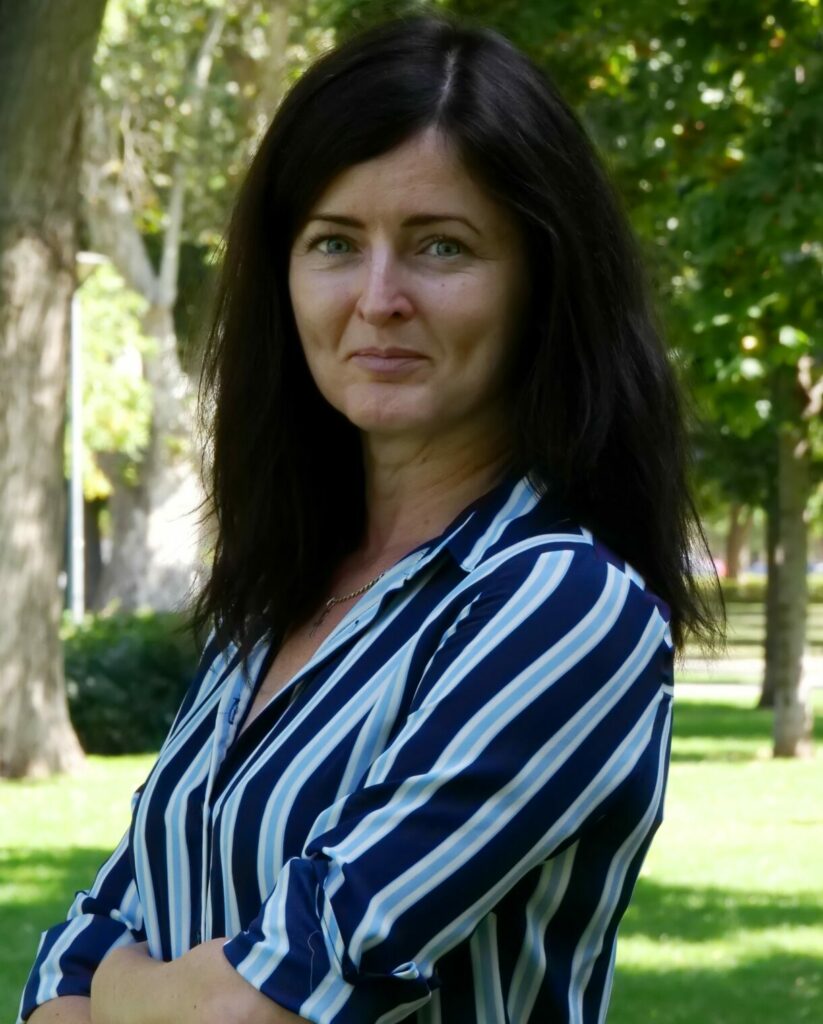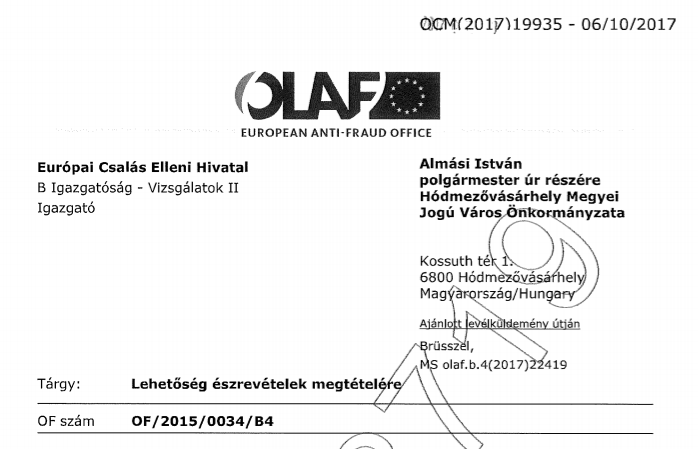The https://english.atlatszo.hu use cookies to track and profile customers such as action tags and pixel tracking on our website to assist our marketing. On our website we use technical, analytical, marketing and preference cookies. These are necessary for our site to work properly and to give us inforamation about how our site is used. See Cookies Policy
OLAF’s letters to Hungarian towns reveal details of fraudulent street light modernization projects
News broke in January that the European Anti-Fraud Office (OLAF) finished a two-year investigation into EU-funded street light modernization programs in Hungary. OLAF found that there were serious irregularities and possible conflict of interest concerning 35 such contracts, all won by Elios Zrt., a company formerly co-owned and led by prime minister Viktor Orban’s son-in-law, István Tiborcz. The contracts in question were signed 2011-2015 and they are worth €40 million.
It was revealed last week that OLAF sent detailed letters to all Hungarian municipalities that had contracts with Elios and modernized their lights using EU funds. Atlatszo.hu filed freedom of information requests with all municipalities, asking them to provide us with a copy of the letter sent by OLAF.

Four of them – Mórahalom, Kalocsa, Mezőhegyes and Hódmezővásárhely – already complied with our request. These letters by the anti-fraud office shed a light on the details of how Elios Zrt. made sure it would win the public tenders and show you the system they used to dominate this market.
Mórahalom
It was the town of Mórahalom that first sent us two letters it received from OLAF. The first, dated October 24, 2017 informed mayor Zoltán Nógrádi that the anti-fraud office is investigating the Elios contract and explained what investigators had already found. The second is dated January 22, 2018 and tells the mayor that the investigation is closed.
The first OLAF-letter lists the irregularities found. One key aspect of the tender was modified, for example, just one day before the deadline for companies to file all their documentation. With this step, Hungarian authorities allowed bidders to use 100,000 hours as an estimate for how long their lamps would work.
The led lamps installed are actually estimated to work 60,000-80,000 hours only, but if calculations would have been made with those numbers, the projects would not have been economical enough to qualify for EU funds.
Mórahalom spent €290,000 on its new street lights and 85% of that was financed by the European Union. No public tender was announced; the town invited three companies to bid: Elios Zrt., Simo Kft.-nek and U-Light Kft.
Only two of them, Elios and Simo bid, but the second was disqualified. OLAF talked to the manager of Simo who told them that they never bid on the project because they are too small to do such huge projects.
The letter also mentions that it was Sistrade Kft. that prepared the public tender for Mórahalom, serving as an advisor. The last two paragraphs of the OLAF-letter detail the problems with this: during the time of the tender, there were strong connections between Elios Zrt. and Sistrade Kft. OLAF makes it clear that during that time Endre Hamar was an owner of both companies – that is, he owned the company that prepared the tender and the one that won it as well. OLAF also makes it clear that István Tiborcz was a manager and co-owner of Elios for a long time.
Hódmezővásárhely
This was the first town that modernized its street lights using EU funds and hired Elios to do the job. The 2011 project cost €2.4 million and the European Union payed for half of that.
The letter OLAF sent to the town notes that the mayor of Hódmezővásárhely was János Lázár at the time, who is Minister of Prime Minister’s Office at the moment.
The letter also points out the fact that this was the first such project done by Elios Zrt., a company that was created just 4 months before it won the tender. This was also the first big project in the entire country where LED technology was used.
Three companies submitted bids: ES Holding Zrt. (later renamed Elios Zrt.), Tungsram-Schréder Zrt. and MetalCom Zrt. The latter two were disqualified, which means ES Holding won. Because the company had very little experience in such projects, it was required to hire subcontractors.
OLAF notes that ES Holding Zrt. had zero experience in public street light projects.
After signing the contract with the town of Hódmezővásárhely, ES Holding decided to replace one of its two subcontractors. Instead of KT Electronic Kft. the company signed a contract with Tungsram-Schréder Zrt. which ended up providing the lamps.
The contract was worth about €1.2 million, about half of the entire contract. However, at the time Hungarian law said that if an unsuccessful bidder joins the project as a subcontractor, it can only do work up to 10 percent of the value of the entire contract.
Also, OLAF notes that the company that served as an advisor to the town of Hódmezővásárhely was Ész-Ker Kft. The majority owner of Ész-Ker Kft. is Péter György Kárpáti, who has co-owned another company with Endre Hamar since 2014.
Kalocsa and Mezőhegyes
We also got the OLAF-letters from Kalocsa and Mezőhegyes. These towns applied for the same EU program to modernize their street lights. Many of the problems that the anti-fraud office raised were the same: Hungarian authorities allowed the towns to estimate a 100,000 lifespan for the led lamps when in fact the provider and independent experts both said that their lifespan would be about 60-80,000 hours at best.
Both towns used the bids from three companies to estimate the costs, and these were SMHV Kft., KVIKSZ Kft. and Polar-Studió Kft. Strangely, the prices in one bid were 5 percent lower than the most expensive, and the other was 7 percent lower. But this was not about the total cost: every single lamp, tool and expense appeared 5 and 7 percent cheaper respectively.
Even the personal connections are the same, proving that Elios Zrt. used the same system in every town: Hamar’s Sistrade was helping both Kalocsa and Mezőhegyes to prepare the tenders.
Written by Katalin Erdélyi
You can read our original stories in Hungarian, with all the relevant documents and OLAF letters embedded here, here, here and here.
[sharedcontent slug=”hirdetes-english”]

